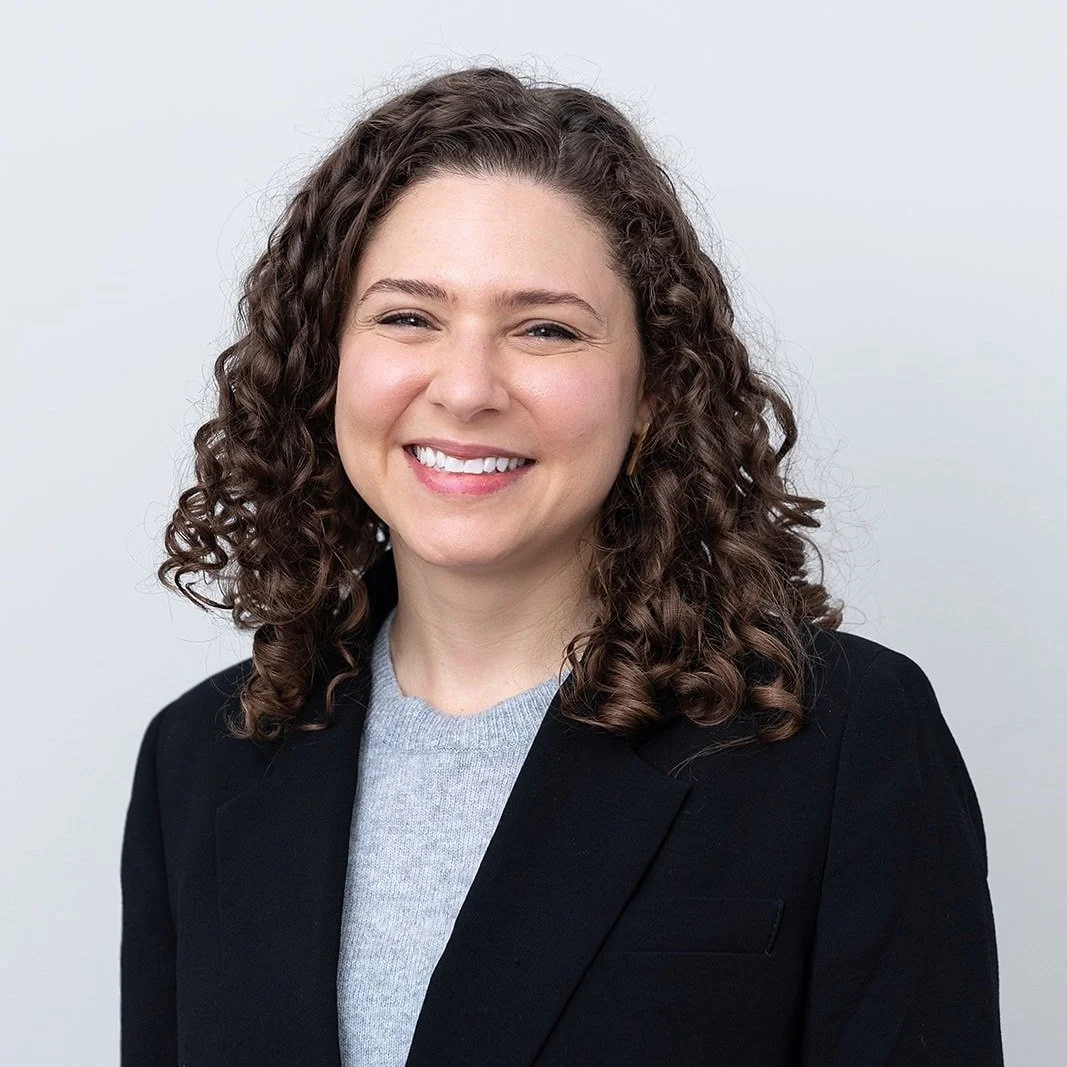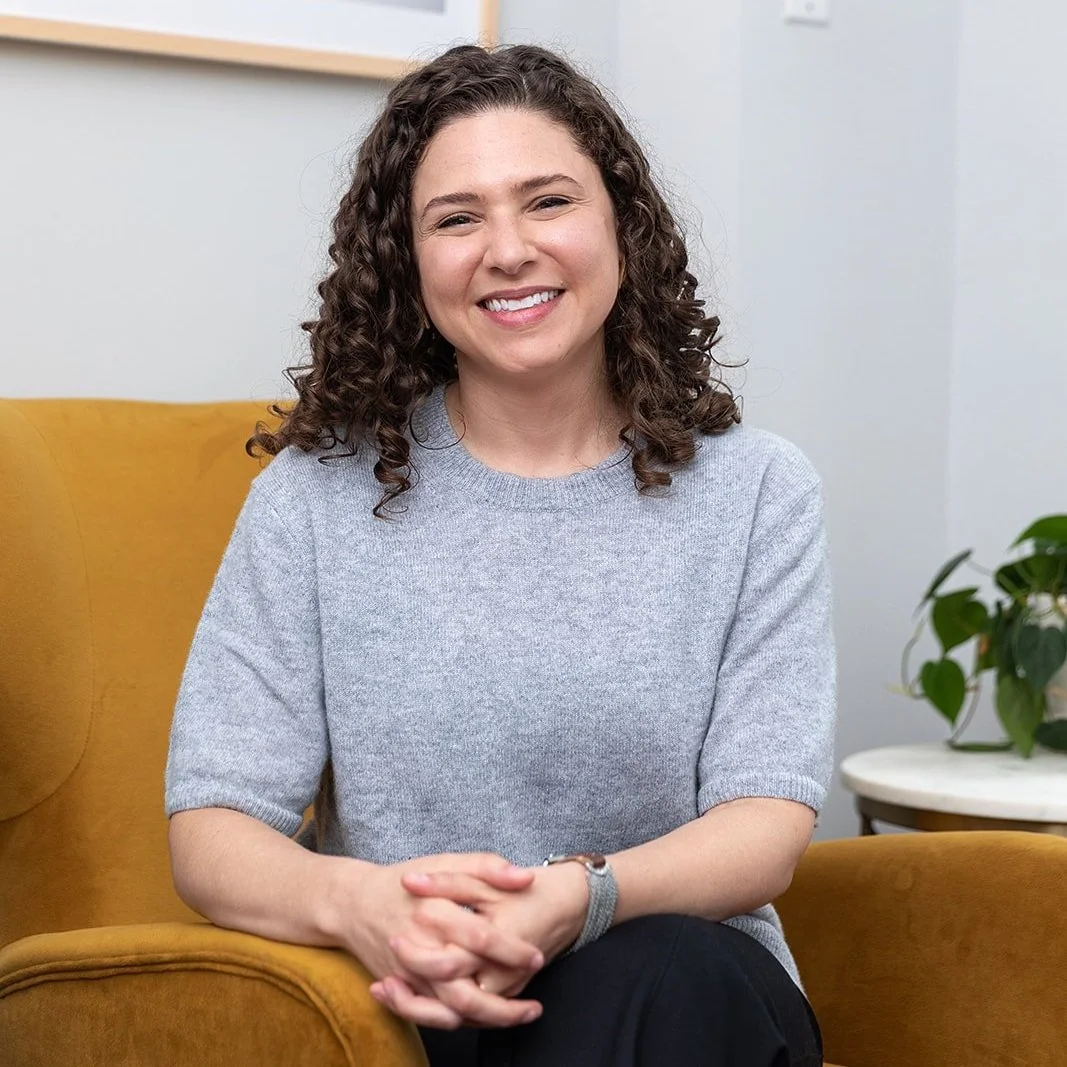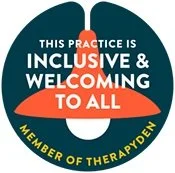Meet Laura Meli, PhD
Clinical Supervisor, Licensed Psychologist (NY)
Specialties: anxiety, trauma, emotion regulation, chronic pain/illness, relationship stress, and LGBTQIA+ mental health
Online Therapy Only
Getting to know Dr. Laura Meli
How would you describe the way you work?
We live in a world with plenty of sharp corners, rough edges, and unrealistic demands. When life happens, we may feel swept away with the momentum of our emotions or completely lost, with our inner critic leading the way. While finding clarity on your own sometimes feels impossible, reflecting on and processing your experiences together can lead to profound shifts - both in your relationship with yourself and with others.
I strive to support you in exploring and understanding the connections between your internal and external worlds. This process looks different for every patient I see because… every patient I see is different! For some, learning new mindfulness or coping skills and setting actionable goals may be the best starting point. Or we might examine thought patterns, identifying skills to shift away from unhelpful coping behaviors or self–critical inner voices. For others, a more open-ended process of self-exploration may work better. Slowing down and having a non-judgmental space to share, I can help you identify the strengths that serve you, patterns that are holding you back, and help you find healing through self-compassion.
No matter the exact ingredients, slowing down the stories we tell ourselves and revisiting well-worn narratives in therapy helps us to see ourselves more holistically. As a clinician, I lean heavily on evidence-based therapies while honoring the importance of personal experiences and emotional narratives. This means I trust scientific research to guide our work, while also understanding that genuine, human connection holds healing power in itself.
How do you approach identity and culture as a therapist?
I believe that honest and ongoing discussions around identity nurture a holistic self-conception, support lasting growth, and improve well-being. All components of our identity, seen and unseen, impact the way we experience and navigate the world. None of us exist in a vacuum – we live within social, political, and institutional structures, which often shape our self-perception and inner belief systems, whether consciously or unconsciously. As your therapist, I strive to be honest about and mindful of my own visible and invisible identities. I recognize that our shared and distinct identities may evoke dynamics that you encounter in your day-to-day life. I find value in openly discussing our similarities and differences – encouraging a safe space to explore how our dynamics together may mirror experiences you have had in other contexts. Everyone’s exact constellation of personal identities and lived experiences is unique. With this in mind, I foster the space for open self-exploration with the goal of discovering together how the many pieces of you manifest and feel within your life and the world.
What can you help me with?
Anxiety (e.g., generalized anxiety, panic attacks, health anxiety, social anxiety)
Chronic pain or chronic illness
Autoimmune conditions (e.g, IBD, lupus, rheumatoid arthritis, multiple sclerosis)
Chronic viral conditions (CFS/ME, Long COVID)
Headache and migraine conditions
Chronic pain, musculoskeletal conditions, hypermobility conditions
Dysautonomia & POTS (postural orthostatic tachycardia syndrome)
Endometriosis, PCOS, CPID, other women’s health conditions
Thyroid disorders
Cardiovascular conditions
Climate change stress (e.g., anxiety, depression, grief)
Grief (e.g., bereavement, other types of losses)
Health stress (e.g., new diagnosis, life adjustment, caregiver stress)
Interpersonal relationships and dynamics (e.g., friendships, boundary issues, family, coworkers)
Mindfulness
Multicultural identity (e.g., racial, cultural, disability, gender, intersectionality, LGBTQIA+, neurodiversity, identity stress)
Self esteem
Trauma (e.g., childhood abuse or emotional neglect, PTSD/C-PTSD, other unexpected traumatic events)
What types of therapy do you use?
Accelerated Experiential Dynamic Psychotherapy (AEDP)
Cognitive Behavioral Therapy (CBT)
Cognitive Processing Therapy (CPT)
Dialectical Behavioral Therapy (DBT)
Emotion Regulation Therapy (ERT)
Multicultural Therapy
Psychodynamic Therapy
Trauma Therapy
What’s your session fee?
I am an out-of-network provider and my fee ranges from $300-325/session. As a psychologist committed to equitable access to therapy, I have a small number of sliding scale spots that you can ask about.
Our practice has partnered with Mentaya - a service that can check what out of network insurance benefits you have for therapy and provide an immediate estimate. Check here.
Education & Professional Training
Laura Meli, PhD earned her PhD and master’s degree from Columbia University in clinical psychology. Prior to her doctorate, she worked as a special education teacher in Harlem and obtained a master’s degree in education from Hunter College. Dr. Meli has an advanced understanding of the connections between trauma, neuroscience, emotion regulation, and chronic pain or illness based on years of training and research. She also focuses on helping people integrate mindfulness into their daily lives.
Dr. Meli has served as an adjunct professor at Columbia in the counseling and clinical psychology department and is also passionate about mental health equity and mentorship. She joins the practice with experience in hospitals, community mental health, and private practice settings. Dr. Meli is a member of the American Psychosomatic Society and American Psychological Association. She also serves as a reviewer for a number of academic journals focusing on health psychology, mood disorders, and traumatic stress. Dr. Meli loves ceramics, spicy food, and scary movies. She speaks Spanish and is learning Portuguese.











